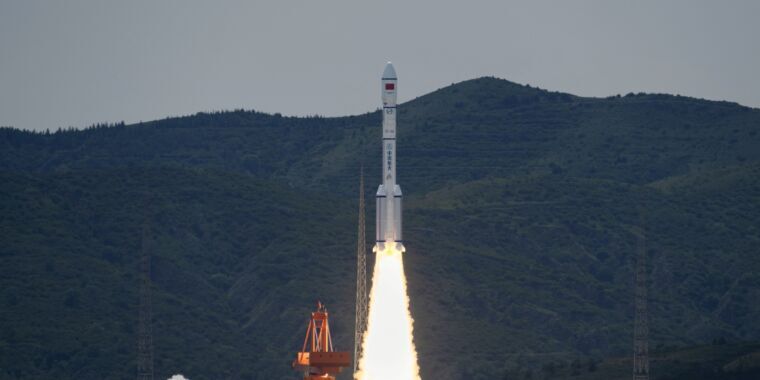Assuming every company/state wants to launch a starlink-equivalent constellation, and they need approximately the same number of satellites in roughly the same orbits - How many mega constellations can co-exist before the orbits are “full”?
And now you understand why some astronomers are against these mega constellations.
Fuck thse affluent fucks who think they own the sky, satellites materially improve life for the most impoverished people in numerous ways - access to education and healthcare for underseved communities is far more important than some snob nerd that wants to pointlessly look at stars as a hobby.
All serious science happens via space based telescopes, the satellites don’t even affect viewing outside small windows of time and position. This is just a luddite talking point that idiots have latched onto because they like to hate everything as an defense mechanism for their own lack of significance and import.
“Fuck the afluent fucks that own the sky …”
You uh… you DO realize these constellations are taking the night sky from YOU, right…?
The telescopes can see many, many times better than you. It will be YOUR eyes unable to see the stars, dumbass.
Check out his profile. He seems to be either a curmudgeon who disagrees a lot or a troll.
No they’re not, that’s s childish and luddite spin on reality. They provid vital services for the most impoverished, I’m more than happy to occasionally see a dim.light in the sky for a brief window of time every night if that’s the cost.
Keep thinking that’s where it will stop. You are a fool who has never been outside of a city if you think it’s no problem.
It seems you’re the one who hasn’t seen the sky if you actually believe the nonsense about them ruining the night sky - there’s a brief window you can see some of them, most never show up an by actual night when people atargaze you can’t see them at all.
Spoken like an ignorant person who doesn’t know about ground based observations.
You should maybe speak to someone if you’re this mad so early in the morning. It’s not good for your wellbeing.
OK so imagine the Atlantic Ocean and each country puts about a sack of rice with each of the grains floating evenly distributed, that’s still an under statement of the scale of space to satellites - and that’s not considering depth.
Are you suggesting then, that space trash isn’t ever going to be an issue? And the scientists / professionals warning us of such problems are incorrect?
Or am I misunderstanding your point?
I wasn’t asking solely about each company having x satellites and thats it. I am including the entire maintenance and lifecycle of the constellation, and all the space junk that it will create. Maybe thats also a nonissue that I am misunderstanding
edit - also, in your example you say the rice is evenly distributed. But as more and more rice is added, the total space available reduces. These satellites need to maintain distance, and that requires the satellites to be able to adjust their orbits etc. Your rice example doesn’t need to contend with that
I’m just trying to answer the asked question, space is absolutely huge and satellites are very small. If you want to think about vectors and potential debris from collision those are other questions - them all moving at different speeds and directions increases the chance of overlap but not into significant numbers and of course they don’t just throw them up and hope for the best they know what they’re doing and can maneuver to avoid problems.
The theorized great space collision resulting in a field of debris is a valid concern but a bit of a y2k fear mongering type story that everyone tells because it’s fun not because it’s actually going to cause problems. China has already run tests of techniques to deorbit trash and it worked well. Was there a need we could solve the problem, but there’s unlikely to be a problem with everyone so aware of it and with efforts to mitigate potential causes.





